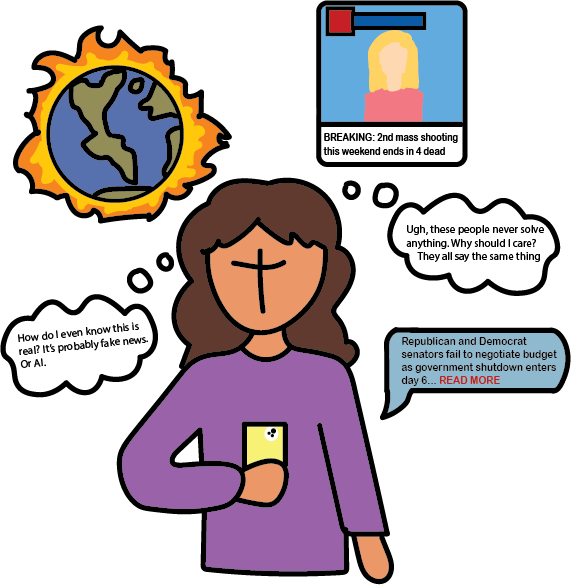States like California, Illinois and Oregon allow students to take days off for mental health. Washington followed suit in 2022 with [HB 1834 – 2021-22]. However, this information is not commonly known — the attendance page of the Inglemoor website does not specifically mention mental health as a valid reason to miss school. Instead, the page vaguely quotes “illness or health condition” as a reason for an excused absence. Students and parents could misinterpret this as applying only to physical conditions. The only area where mental health is mentioned is in the Pre-arranged Extended Absence contract, which is a form that people must download from the attendance page to report absences in advance.
Administration needs to make all reasons for excused absences transparent, especially mental health, because of the benefits students would experience: including less stress, better productivity and stronger communication.
Although opponents of mental health days argue that students will take advantage of them, this authorization puts the responsibility of their scheduling on the student, which is a necessary step in building independence. Moreover, mental health days can have a significant positive impact on overall productivity and academic performance. In a survey of 763 respondents by Inner Body Research, the amount of people who rated their happiness at the highest rank more than doubled after taking a day off for their mental health. When students and employees are given the chance to recharge and address their mental health, they are more likely to return with a renewed sense of focus and energy. At home, they can work at their own pace without strict deadlines and a school schedule. They also have time to figure things out at their own pace, without a stressful classroom environment. Taking a day off from school allows student’s to avoid the restrictive school schedule and control their own work flow.
Additionally, being able to take days off for work prepares students’ communication at future jobs. If a student decides to take a day off school to work, they also must communicate with partners in collaborative projects, such as clubs, presentations, assignments and group work. By being able to contact them in a timely manner, knowing their own schedule and deciding whether or not taking a day off from school would negatively impact others, they learn important workspace skills. Also, the decision to miss school affects their own reputation.
Despite the benefits, Washington is one of only 12 states that legally allow students to take days off for mental health reasons. Beyond its productivity benefits, expanding absence policies in schools to allow days off for mental health is a crucial step toward recognizing the importance of emotional well-being. Just as students and employees are encouraged to stay home when physically ill, they should also have the opportunity to address their mental health without fear of judgment or penalty. By implementing such policies nationwide, schools would send a powerful message that mental health is equally valued and prioritized. This can help mitigate the stigma surrounding mental health issues — especially as the National Institute for Mental Health reports that 1 in 5 teenagers suffer from mental illness — encouraging individuals to seek necessary help and take proactive steps toward self-care.
Prioritizing mental health through clear policies and accessible communication is vital for fostering a supportive and productive environment in schools and workplaces. By ensuring that students and employees are aware of their rights to take mental health days, institutions promote a culture that values well-being as much as academic or professional success.
Furthermore, transparency, such as explicitly listing mental health as a valid reason for excused absences, empowers individuals to take charge of their mental health without fear of judgment. When schools give mental health the attention it deserves, students and workers alike can thrive, contributing to a more understanding, balanced and resilient community.










